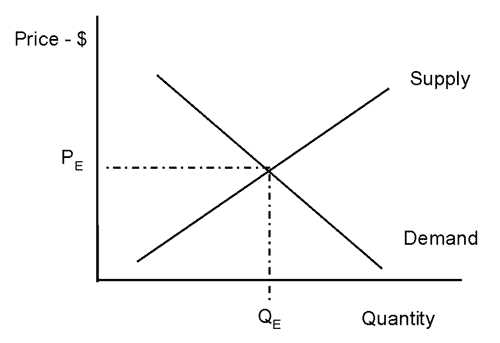Why becoming an EMPIRE is so costly...
The following commentary was broadcast by Michael Meeropol over WAMC radio on April 6, 2007.
DO THE BUSH ADMINISTRATION’S MILITARY ACTIONS IN
On March 19, the Washington Post reported that top military leaders were concerned that the demands of the wars in
“… the high and growing demand for
In economics classes we note that even resources for the military are not infinite – choices must be made.[2] One of the reasons many members of Congress are critical of the Bush Administration’s decision to go to war in
The evidence from the article suggests that other goals of our nation’s military have been slighted because of the failure to win the War in
" ‘You take a lap around the globe -- you could start any place:
Some of you listening may see this as another example of the “incompetence” of the Bush Administration but that is not the focus of my comments today.
My concern is with the implications of General Pace’s testimony – with his characterization of these shortfalls in troops, equipment and training as creating “increasing risk” for the nation.
Let me ask a question: How does our nation face increasing risk because we cannot move our armed forces rapidly to fight wars in all these countries?[4]
Not one member of Congress suggested to General Pace that it is wrong for the
Every May, my college’s ROTC graduates take an oath upon enlistment into the armed forces. They promise to “support and defend the Constitution of the
That should NOT be their job.
Here’s a troubling thought.
Maybe the fact that Bush is misusing the Army and Marine corps so much that they cannot fulfill what General Pace thinks is their world wide mission is a GOOD THING.
Maybe replacing Bush with someone who “fixes” the ability of the military to invade all 14 of the above countries would actually be a bad result.[6]
We the American people have to answer a question. Do we want to abandon the
I would like to see a serious national dialog about that issue.
[1] Military Is Ill-Prepared For Other Conflicts
By Ann Scott Tyson
[2] Virtually all economics textbooks introduce the problem and scarcity and choice right at the beginning. See, for example, Campbell R. McConnell and Stanley L. Brue Microeconomics (17th ed): NY: McGraw-Hill Irwin, 2008, pp. 10-13. There they note that if society had only two choices, Pizza and Robots to the extent that the society used all its resources at maximum efficiency, the only way to have more of one good, say, more Robots, would be to give up some of the other good, in this case, Pizza. Sometimes in class we switch the choice to national defense goods and civilian goods. We can try to minimize the amount of civilian goods produced so as to maximize military goods – as the US and other combatants did during World War II – but we cannot produce ONLY military goods (if we tried all the soldiers would starve!) and even if we could that would be a finite amount.
[3]
[4] I was inspired to do this commentary and ask this question by an article by Chris Floyd: “Hard Truths for Hard Times” posted on the “Global Research” web site on March 21, 2007. http://www.globalresearch.ca/ After going to this web site, type in Chris Floyd in the “search” box about 2/3 of the way down on the left and you will be directed to all of his articles. Floyd presents detailed arguments as to why General Pace’s comments and the response from both the members of Congress and the media are much more worrisome than the alleged fact that President Bush’s policies have “depleted” our armed forces. If we leave out Afghanistan, Iran, Iraq, and North Korea, that still leaves Syria, Lebanon, Yemen, Somalia, Sudan, Venezuela, Colombia, Philippines, Malaysia, Indonesia, and Pakistan, as areas where according to General Pace it is important that the US military be able to invade. And note, he stated “I probably missed a few…” Do we really believe that the
[5] For some extremely valuable historical background, see the following works by and about William Appleman Williams: The Tragedy of American Diplomacy,
[6] Before anyone complains, I want to make it clear that I, too, believe that the Bush Administration’s neglect of our military personnel in terms of care and equipment in the field is virtually criminal. That is not my point. My point is, a smaller military with a mission consistent with a democratic republic not a worldwide empire is what we should all prefer. Not only will it cost less for taxpayers – it will also cost less in terms of world wide resentment and hatred for us as a country. And the most important point I would like to make is that we as a society LOSE on balance by attempting to become a world wide empire. True, some individuals and businesses gain dramatically but the average taxpayer pays more, the average citizen (potentially) sacrifices more (in terms of being wounded, killed or having a family member be a casualty) than would be the case if we remained true to our ideals as a republic and eschewed Empire.


0 Comments:
Post a Comment
<< Home